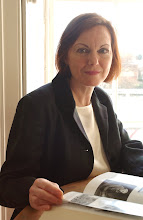
 Mark Bourne contacted me with a fascinating account of his great, great grandfather’s experience at University College London (UCL). Alfred Gibbs Bourne, aged 20 (top picture), was a biology student at UCL in 1879. He studied biology under (Sir) Edwin Ray Lankester (1847-1929) who had been appointed to the chair of zoology in 1875. Alfred subsequently became Lankester’s assistant and worked as his demonstrator. Mark quotes from two journals written by Alfred during this period. He says: ‘The journal is essentially a love letter and was exchanged at several intervals with his wife-to-be, Emily, during an enforced separation to allow them to continue their studies. However, of interest to your project might be some descriptions of his life as a student demonstrator.’
Mark Bourne contacted me with a fascinating account of his great, great grandfather’s experience at University College London (UCL). Alfred Gibbs Bourne, aged 20 (top picture), was a biology student at UCL in 1879. He studied biology under (Sir) Edwin Ray Lankester (1847-1929) who had been appointed to the chair of zoology in 1875. Alfred subsequently became Lankester’s assistant and worked as his demonstrator. Mark quotes from two journals written by Alfred during this period. He says: ‘The journal is essentially a love letter and was exchanged at several intervals with his wife-to-be, Emily, during an enforced separation to allow them to continue their studies. However, of interest to your project might be some descriptions of his life as a student demonstrator.’Written on 25th Nov 1879:
'From 2 to 5 the practical zoology class lasts + I have to look after it all, settle what is to be done, provide material + be generally responsible for the whole thing. Ray sometimes does not come in but leaves it all to me. I have three demonstrators to help me, 2 of whom are “swell men" who have taken their degrees at Oxford + are both older than myself so that I feel a little shy of telling them what to do.
On Tuesday + Thursday we have the Ladies' Class + I have to take that myself – Lankester generally giving them a little time. - Oh how I wish my own darling was in it. Wouldn't I take pains over it then – as it is I do my best for them because it will be rather a good thing to say afterwards if they pass their examination that I had something to do with the teaching of the first ladies who ever took a degree.'
In 1878, UCL became the first British university to admit women on the same terms as men.
In 1878, UCL became the first British university to admit women on the same terms as men.
'You have heard of my Ladies Class - the council have settled that it had better not be continued after Xmas - they have been in the habit of attending Lankester's lectures & then 2 afternoons a week coming to me upstairs for practical work - They have thus asked me to continue with them giving them private lessons - i.e. two of them ... have asked me to take them at home two evenings a week - my first impulse was to say no - chiefly on your account & I would do so in a moment if I thought you would not like it, but then I thought that you had too much trust in me to abstain from teaching 2 young ladies Biology - my great wish to do it lies in the fact they are the first ladies who have gone up for a Science degree & of course if I could pass them well it would be greatly to my credit & I might get more work to do another year & if I stick to Biology it will be very important that I should get plenty of coaching, that's the thing that pays. I hardly like however arranging to coach these women without knowing what my own darling would wish, as all I do will be only a means to make her happy in life & care for her'.
Mark says that as a science student himself (Earth Sciences, University of Oxford), he finds accounts of his great, great grandfather’s life very interesting. He also noticed in our video of the Bloomsbury project, an image of women being taught in 1878 and in fact this image (bottom picture) was taken in the zoology department – notice the animal skeletons on the desks.
